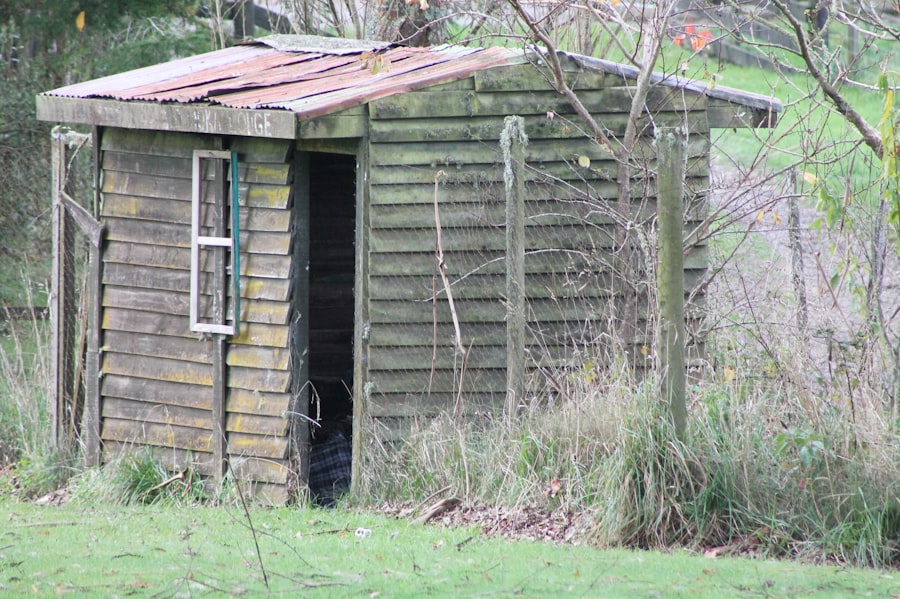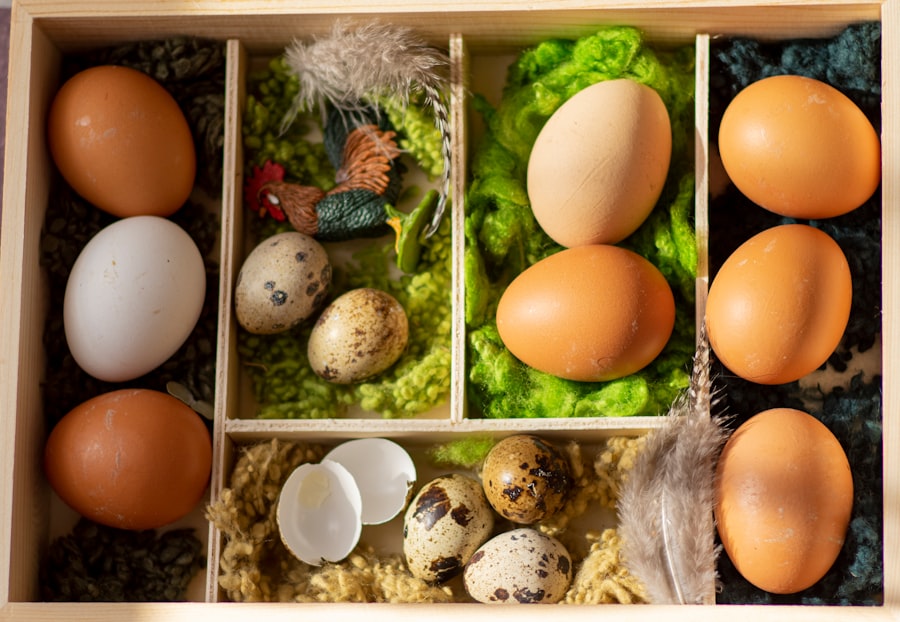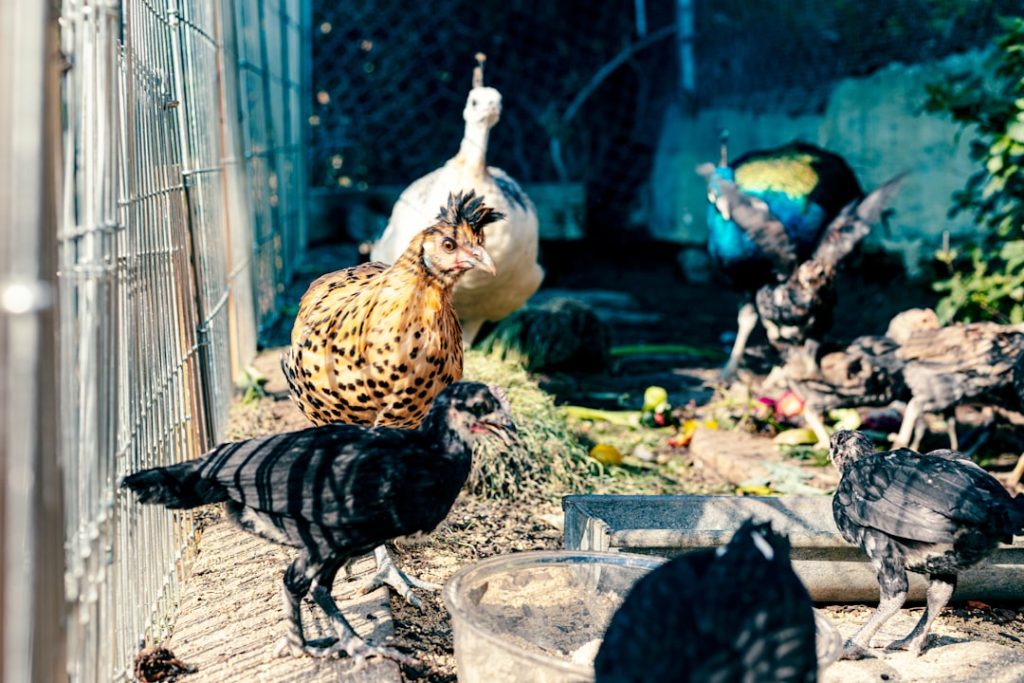Raising baby chickens is a rewarding endeavor for both beginners and experienced poultry keepers. Whether the goal is egg production, meat, or companionship, proper care is crucial for the health and development of young chickens. From hatching, chicks require a nurturing environment, appropriate nutrition, and careful integration into the existing flock.
Key considerations in raising baby chickens include the duration of brooder use, the appropriate age for outdoor coop transition, the length of time on starter feed, and the optimal timing for introduction to adult chickens. Monitoring growth and determining when to separate males and females are also important aspects of chick rearing. The brooder phase typically lasts 4-6 weeks, depending on weather conditions and the chicks’ feather development.
Transitioning to an outdoor coop usually occurs between 6-8 weeks of age, when chicks are fully feathered and can regulate their body temperature. Starter feed is generally provided for the first 6-8 weeks, after which chicks can gradually transition to grower feed. Introduction to adult chickens should be done cautiously, usually around 8-12 weeks of age, to minimize stress and potential aggression.
Separating male and female chickens becomes necessary around 4-6 months of age to prevent unwanted breeding and maintain flock harmony. By understanding these developmental stages and providing appropriate care, chicken keepers can ensure their chicks grow into healthy, productive adult birds.
Table of Contents
- 1 The First Few Weeks: How Long to Keep Baby Chickens in a Brooder
- 2 Growing Up: How Long to Keep Baby Chickens on Starter Feed
- 3 Integrating with the Flock: When to Introduce Baby Chickens to Adult Chickens
- 4 Monitoring Growth: When to Separate Male and Female Baby Chickens
- 5 The Importance of Proper Care and Attention for Baby Chickens
- 6 FAQs
- 6.1 How long do you have to keep baby chickens before they are considered adults?
- 6.2 What is the recommended temperature for baby chickens?
- 6.3 How long do baby chickens need to be kept under a heat lamp?
- 6.4 When can baby chickens be moved from a brooder to a coop?
- 6.5 What is the recommended feed for baby chickens?
Key Takeaways
- Raising baby chickens requires proper care and attention to ensure their health and well-being.
- Baby chickens should be kept in a brooder for the first 6-8 weeks to provide warmth and protection.
- Baby chickens can be moved to a coop at around 6-8 weeks old, once they are fully feathered and able to regulate their own body temperature.
- Baby chickens can be kept on starter feed for the first 6-8 weeks before transitioning to a grower feed.
- Introduce baby chickens to adult chickens at around 8-12 weeks old, once they are similar in size and able to defend themselves.
- Monitor the growth of baby chickens and separate males from females at around 12-16 weeks old to prevent breeding and aggression.
- Proper care and attention are crucial for the healthy development of baby chickens, from providing warmth and nutrition to ensuring a smooth integration into the flock.
The First Few Weeks: How Long to Keep Baby Chickens in a Brooder
Creating the Ideal Brooder Environment
The general consensus among poultry experts is that baby chickens should remain in a brooder for approximately 6-8 weeks. This timeframe allows them to develop their feathers and regulate their body temperature before being exposed to the outdoor elements. While in the brooder, it’s important to monitor the temperature regularly and make adjustments as needed to ensure that the chicks are comfortable. A heat lamp or heating pad can provide the necessary warmth, and a draft-free environment is essential for their well-being. Additionally, providing a clean and spacious area with access to fresh water and chick starter feed will support their growth and development.
Transitioning to the Outdoors
After spending several weeks in a brooder, baby chickens will eventually need to transition to an outdoor coop. The timing of this transition is crucial, as it directly impacts their ability to adapt to their new environment and integrate with the rest of the flock. Generally, baby chickens can be moved to a coop at around 6-8 weeks of age, once they have developed their feathers and are better equipped to regulate their body temperature.
A Successful Transition to the Coop
However, it’s important to consider the weather conditions and ensure that they are adequately protected from extreme temperatures and predators. When moving baby chickens to a coop, it’s essential to provide a safe and secure environment that offers protection from predators and access to food and water. Additionally, gradually introducing them to the outdoor space by allowing supervised outdoor time can help them acclimate to their new surroundings. Monitoring their behavior and ensuring that they are comfortable in their new environment is key to a successful transition. By moving baby chickens to a coop at the appropriate age and providing the necessary support, you can help them thrive as they continue to grow and develop.
Growing Up: How Long to Keep Baby Chickens on Starter Feed

As baby chickens continue to grow, their nutritional needs evolve, requiring careful consideration of their diet. Starter feed is specially formulated to provide the essential nutrients that baby chickens need for healthy growth and development. Typically, baby chickens should be kept on starter feed for approximately 6-8 weeks before transitioning to grower feed.
This timeframe allows them to receive the necessary nutrients for bone development, muscle growth, and overall health during their early stages of life. Providing a balanced diet that includes starter feed, fresh water, and occasional treats such as fruits and vegetables will support their nutritional needs as they continue to grow. Monitoring their growth and behavior can also provide valuable insights into their dietary requirements.
As they approach the 6-8 week mark, gradually transitioning them to grower feed will help ensure a smooth transition while meeting their evolving nutritional needs. By keeping baby chickens on starter feed for the recommended duration and providing a well-rounded diet, you can support their growth and development as they mature into healthy adult chickens.
Integrating with the Flock: When to Introduce Baby Chickens to Adult Chickens
Introducing baby chickens to adult chickens is an important step in their development and socialization within the flock. While it’s natural for baby chickens to form bonds with their peers in the brooder or coop, integrating them with adult chickens requires careful consideration of timing and behavior. Generally, baby chickens can be introduced to adult chickens at around 8-12 weeks of age, once they have had time to establish themselves in the coop and develop their social skills.
When introducing baby chickens to adult chickens, it’s important to monitor their interactions closely and ensure that they are not being bullied or intimidated by older members of the flock. Providing separate feeding and watering stations can help prevent competition for resources and reduce potential conflicts. Additionally, allowing supervised interactions between baby chickens and adult chickens can facilitate a gradual integration process.
By introducing baby chickens to adult chickens at the appropriate age and monitoring their interactions, you can help them establish positive relationships within the flock as they continue to mature.
Monitoring Growth: When to Separate Male and Female Baby Chickens
As baby chickens grow and mature, it becomes necessary to address gender-specific considerations within the flock. Determining the gender of baby chickens can be challenging in the early stages of development, but as they approach 12-16 weeks of age, distinct physical characteristics begin to emerge. At this stage, it’s important to monitor their growth and behavior closely to identify male and female chickens accurately.
Separating male and female baby chickens becomes necessary as they reach sexual maturity, typically around 16-20 weeks of age. This separation helps prevent unwanted breeding and potential conflicts within the flock. Providing separate living spaces for male and female chickens allows for better management of breeding activities while maintaining a harmonious environment within the flock.
By monitoring the growth and behavior of baby chickens as they approach sexual maturity and separating males from females at the appropriate age, you can help maintain a balanced flock while ensuring their well-being.
The Importance of Proper Care and Attention for Baby Chickens

Creating a Nurturing Environment
Proper care for baby chickens involves creating a warm and secure environment in a brooder, ensuring a smooth transition to an outdoor coop at the appropriate age. This stage is crucial in their overall well-being, and by providing the necessary care, you can set them up for success.
Meeting Nutritional Needs
Providing balanced nutrition with starter feed is essential for the growth and development of baby chickens. By monitoring their growth and adjusting their feed accordingly, you can ensure they receive the nutrients they need to thrive.
Facilitating positive interactions with adult chickens and managing gender-specific considerations as they mature are critical components of raising healthy baby chickens. By integrating them with adult chickens and separating males from females, you can promote a harmonious and healthy flock.
If you’re interested in learning more about caring for baby chickens, you may also want to check out this article on how to build a garden chicken coop. It provides valuable information on creating a safe and comfortable environment for your chickens to thrive in.
FAQs
How long do you have to keep baby chickens before they are considered adults?
Baby chickens, also known as chicks, are considered adults when they reach 16-20 weeks of age, depending on the breed.
What is the recommended temperature for baby chickens?
The recommended temperature for baby chickens is around 95 degrees Fahrenheit for the first week, with a gradual decrease of 5 degrees per week until reaching the ambient temperature.
How long do baby chickens need to be kept under a heat lamp?
Baby chickens need to be kept under a heat lamp for the first 6 weeks of their life to maintain the recommended temperature for their growth and development.
When can baby chickens be moved from a brooder to a coop?
Baby chickens can be moved from a brooder to a coop when they are fully feathered, usually around 6-8 weeks of age, and can maintain their body temperature without the need for supplemental heat.
What is the recommended feed for baby chickens?
The recommended feed for baby chickens is a starter feed that contains the necessary nutrients for their growth and development. This feed is typically given to chicks from hatching to around 6-8 weeks of age.
Meet Walter, the feathered-friend fanatic of Florida! Nestled in the sunshine state, Walter struts through life with his feathered companions, clucking his way to happiness. With a coop that’s fancier than a five-star hotel, he’s the Don Juan of the chicken world. When he’s not teaching his hens to do the cha-cha, you’ll find him in a heated debate with his prized rooster, Sir Clucks-a-Lot. Walter’s poultry passion is no yolk; he’s the sunny-side-up guy you never knew you needed in your flock of friends!







